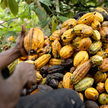The backstage of Poland’s negotiations with the European Commission on the agricultural budget was presented by Krzysztof Ciecióra, Deputy Minister of Agriculture. – Today we are starting the debate again to operationalise our strategic plan. Talks with the European Commission and Commissioner Janusz Wojciechowski helped. We had to make a lot of compromises, but issues related to food quality or ecology arise from changes in the market. Quality is increasingly required of the farmer, hence the concern for animal welfare – we will subsidise farmers for taking care of their farms, said Krzysztof Ciecióra.
Czytaj więcej
Wspieranie rolnictwa w zmieniających się warunkach klimatycznych i geopolitycznych, a także model...
Evolution, not command
– The change in the agricultural model to a more sustainable one should be evolutionary, not mandated, and EU programmes make this possible, K. Ciecióra said. The panellists agreed that in the face of the market turmoil generated by Russia and the war, it is essential to support farmers as they are vulnerable in geopolitical wars and were the first to suffer economically when fertiliser prices skyrocketed in the fall. – Disturbances at the level of food producers will have a very serious impact on subsequent supply chains. If we don’t support farmers, they won’t make it on their own. That is why it is important to understand the problem and cooperate with the recipients of their raw materials, K. Ciecióra explained.
– We are at the verge of cost increases. As a company, through our activities we are able to directly support manufacturers; that is what we are focused on. Large company is responsible for smaller companies, for our suppliers. When thinking about the impact we have, I have four areas in mind – the planet, product quality, local communities, and employee development, said Adam Pieńkowski, CEO of McDonald’s Poland. Among other things, the company’s best practices in the field of agriculture consist of education and support for the development of partners and investment in green innovative solutions. The company works with 47 domestic suppliers, and is one of the largest buyers of beef on the Polish market – about 30% of the carcasses produced in the country go to McDonald’s restaurants. The brand aims to rely exclusively on sustainably sourced raw material within a few years; therefore, a few years ago it initiated a dialogue within the Sustainable Beef Platform. In addition, it regularly audits suppliers and breeders for required standards.
Accumulation of gigantic changes
Magdalena Brzezińska, Communications Director at the Żywiec Group, noted that the pandemic, the war, and the economic crisis happened to Europe in just two and a half years. – During this time, we have seen a great deal of enormous changes. The accumulation has caused a huge impact on the market. Farmers are indeed vulnerable; they have neither the resources nor the possibility to work together to manage themselves, said the spokeswoman for Żywiec. She recalled that during the pandemic, retail and food service markets collapsed, demand for certain products and services dropped tremendously. The effects hit farmers directly, with suppliers unable to pick up their produce due to a collapse in their own restaurant sales. – We decided to buy malt for more than PLN 5 million, which is beyond our needs. This was well received by farmers, and gave us access to sustainable raw materials, she said. The situation is changing rapidly, and as a result, there was the issue of the lack of availability of good raw materials for brewing. – At that momet, we saw the importance of long-term relationships and to think with the common interest, M. Brzezińska said.


























